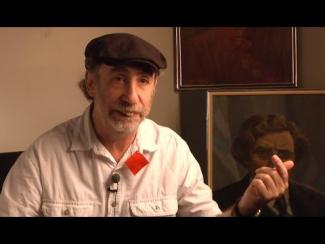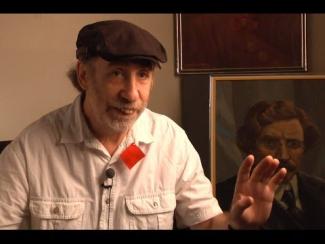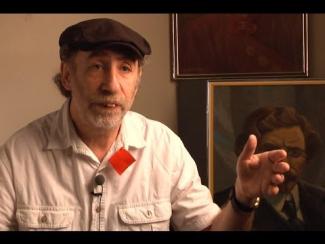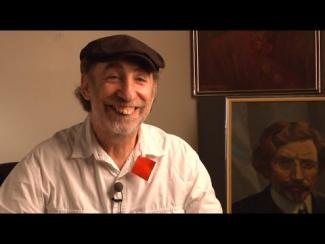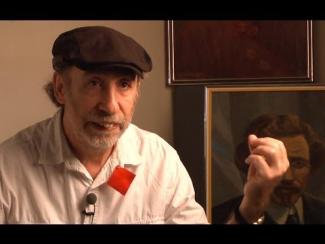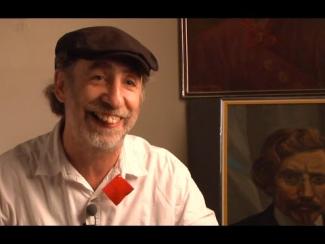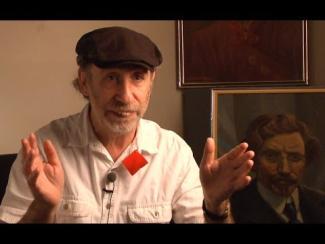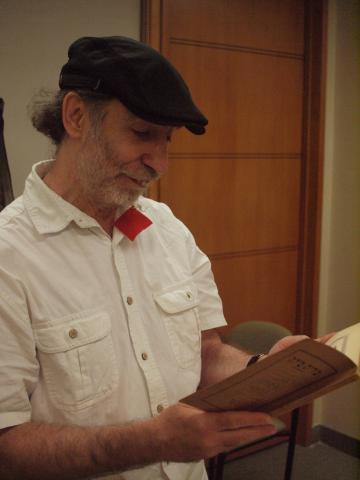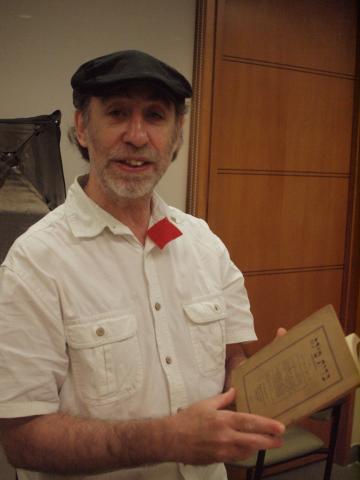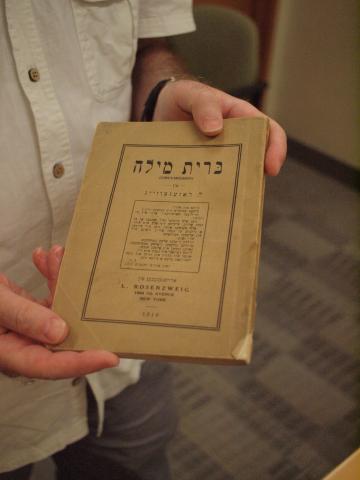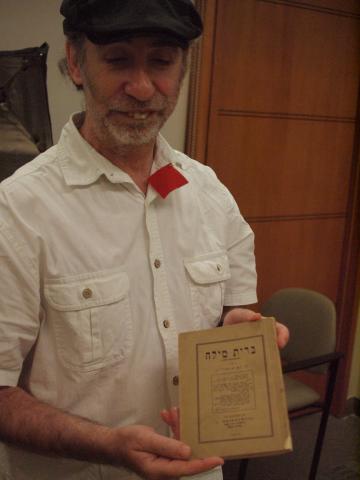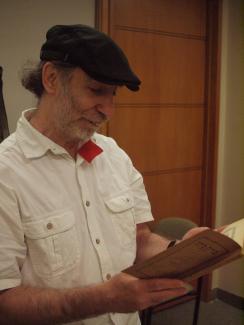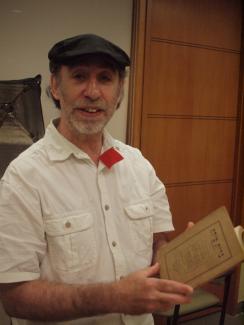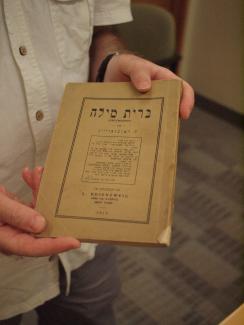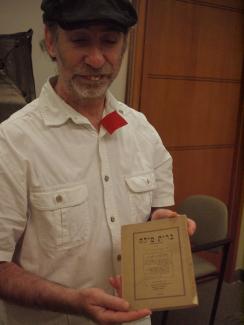The Yiddish Book Center's
Wexler Oral History Project
A growing collection of in-depth interviews with people of all ages and backgrounds, whose stories about the legacy and changing nature of Yiddish language and culture offer a rich and complex chronicle of Jewish identity.
Moishe Dolman's Oral History
Moishe Dolman - political organizer and frequent visitor to the Montreal Jewish Public Library - was interviewed by Christa Whitney on July 10, 2012 at the Montreal Jewish Public Library in Montreal, Canada. Moishe's father came to Canada as a baby after surviving a pogrom in Ukraine; his mother was born in Montreal to immigrant parents from the same part of the world. His father was a factory worker, and most of his friends were working class. His parents were not Yiddishists or ideologues, but Moishe learned Yiddish at home and in the folkshule, the closest place to get a Jewish education. His home was kosher and Shabbos-observant but not extremely Orthodox. When he was a child, Jews were the third largest group in the city, after the French and the English. Moishe attended a public school, although almost all the students in the "Protestant" school were Jews. They would sing every morning from the hymn book, but the school was virtually empty on Jewish holidays. Moishe's mother was a homemaker who volunteered for forty years as the secretary of the "Hebrew Ladies' Sick Benefit Society," a group that, before Medicare, collected funds to help support members who were sick. Moishe talks about the upward mobility of most Montreal Jewish families—his parents would never have expected this, but all four of their children attended university. Moishe's parents passed along the expectation of mentschlekhkayt (human decency) and would mix up the concepts of "religious" and "decent." Moishe remembers when people used to use "Jewish" when they meant "Yiddish." There were many Holocaust survivors in his neighborhood whose first language was Yiddish. He muses about how his interest in Yiddish was reawakened in adulthood, considering the different attitudes toward Jewishness among his friends and neighbors. The Yiddish world opened for him when his family was living in an apartment house near the MJPL in his early twenties. He started listening to Yiddish music, especially klezmer, which he loved. In its heyday, the MJPL presentations attracted very large crowds. Although he couldn't always understand the words, the atmosphere reminded him of the warmth of his family home growing up. Moishe considers Yiddish a "countercultural" language. He describes the impact of reading the first book of the Bible in Yiddish. He is adamant that Yiddish is a rich language and feels that we should make sure that we are laughing with Yiddish and not at it. Also, we should guard against the instinct to feel superior to the language. He talks about how his political activism was strongly influenced by his Jewish/Yiddishist background and jokes about those who deny this link. It has become difficult for Moishe to focus on political projects because his paying work translating Yiddish into English is very time consuming. He talks about teaching a short story by Dovid Bergelson and suggests that one must understand the culture, both secular and religious, not just the language, to understand the story. He knows that it's impossible, but he advises that those interested in learning the language speak Yiddish twenty-four hours a day.
This interview was conducted in Yiddish and English.
Moishe Dolman was born in Montreal, Quebec, Canada in 1952.

